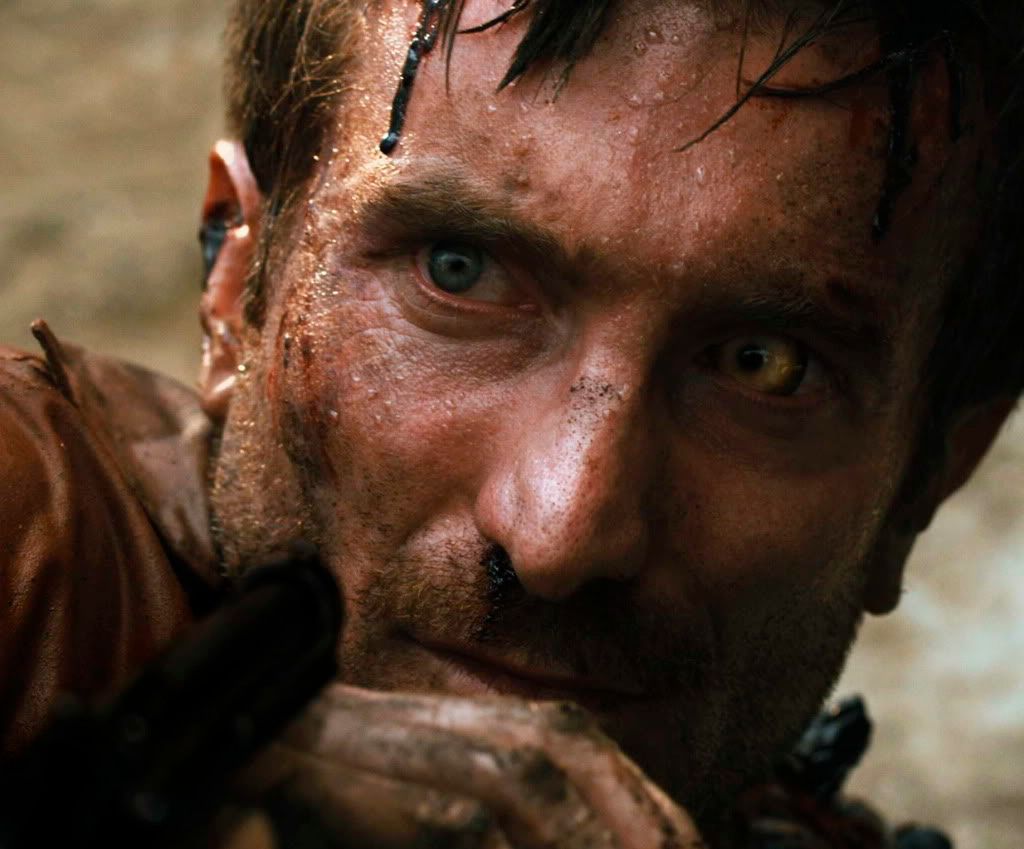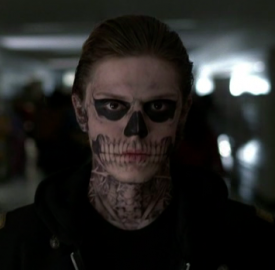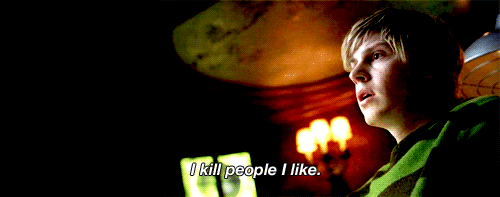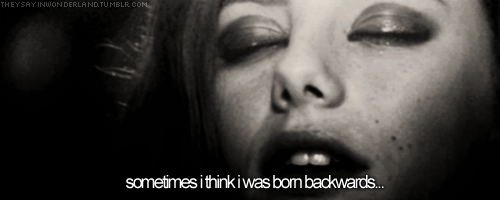The Hand of the Plague
Jan 8, 2010 15:12:57 GMT -5
Post by Gorim on Jan 8, 2010 15:12:57 GMT -5
The plague began in the Slum District of dwarven city-state of Va Atrast, and spread to every other district from there. It began as what appeared to be a simple outbreak of the flu, and since it was the Slums, the nobility and guards gave it little thought. Within a week, it had spread to the Lower Middle District, afflicting farmers with a disease that caused their flesh to slough off like meat and their blood to boil and their lungs to fail. In two weeks, the miners and merchants of the Upper Middle District were desperate, bodies burning in piles in the streets, and the sick and dying curled up in helpless, bloody balls in the gutters. And it was worse in the lower districts.
The nobility and warriors sealed off the lower districts, falling back behind the stone doors and walls that had always separated the classes. But even that didn't stop the plague. It didn't discriminate. It eked through the cracks and flowed over the walls and came down on the Upper District with a passion.
The city fell into chaos. Bodies of the dead and dying filled the streets, thrown into large piles and burned into dust. Feral dogs ran through the Slums, and the sounds of children crying and the death screams and hacking coughs of the afflicted echoed through the streets. No one could leave the city and no one could get in. Every district was left to fend for itself. And none of them could stop the Affliction alone.
No medicine could cure it, no matter how powerful. No healing slave's magic could stop it either, and more than a few died trying. But the dwarves, stubborn as they are, didn't send for help until King Flint became afflicted. Then, his most capable son became regent and his most capable child, his daughter, called for help.
The human city-state of Firenze looked to their holy books, and the elven city-state of Arlatha looked to their lore and history. Both found the same answer, a rare occurrence.
Generations before, the humans, dwarves and elves had banded together to defeat the race of Magi. After their destruction was through, their city laid to ruin and their people enslaved, the most powerful artifacts were taken by the human Church without the knowledge of either of the other races. The Hand of the Plague, the Mind Drinker Amulet, and Orb of Andrasta. They were kept in the Holy Church for defense of the city. When the elves accused the humans of attacking the dwarves, the Church announced that the artifacts had been stolen.
The elves and the humans met in Firenze, in the king's private office. The elves sent their princess and a hunter, a man and a woman, and the humans sent the king of Firenze, Leonardo, and the Holy Mother of the Church, Mother Maria. The elves, with their pointed ears, canted eyes, long, braided hair and more simple, unearthly clothing, looked incredibly out of place in the richly furnished royal office. The king sat behind a dark wooden desk that was usually messy, but had been cleaned and organized especially for the meeting, wearing the billowy sleeved robe that was in fashion for the human nobility. Mother Maria stood slightly behind the elves, flanked by Knights of the Church, the Mother wearing the rose-and-gold robes of the Church, the Knights wearing shining steel embossed with the fleur-de-lis crest of the Church.
"How do we know this isn't a ruse?" The female elf hissed in heavily accented Common. "That the artifacts you stole are really in your hands, and you will use them to destroy us as you did the Magi?"
"The Magi were attacked by us all, Princess Niari," King Leonardo firmly. "And I assure you that this was unknown by us all." He glanced at the Holy Mother, who ignored him. "What we must do now is find them before they cause more harm."
"We must help Va Atrast," the male elf insisted. "They have called to us for aid. We will not ignore them."
"You will not." The Holy Mother said dismissively. "They are Atheists, an affront to the Creator." Princess Niari scowled and hissed at the old woman, snarling in the musical language of elves.
"Their spiritual beliefs aside," Leonardo said firmly, glaring at the Holy Mother (which was very near blasphemy). "I agree with the princess. We must help them." He mused as the Holy Mother glared at him in outrage and the elves looked smug. "Princess Niari, Hunter Avok, who will the elves send to Va Atrast?"
"We leave within the week," the princess said proudly. "My betrothed and I." The hunter nodded grimly and the Holy Mother raised an eyebrow.
"They're sending their princess into a plague-infested city?" She asked skeptically. The princess lifted her chin proudly.
"I am the best." She said. "I handle myself better than most. Besides, from our lore, the Hand of the Plague only infects specific targets and races. I shall be safe." The king nodded, amused.
"I see. There's also the political factor as well." Niari nodded.
"Better to send those capable of making decisions for their people," she agreed. Leonardo considered that.
"Then I shall send my own daughter," he decided. The Revered Mother's jaw dropped.
"Your Majesty," she said. "You're not considering sending the Princess Royal into such a place without protection?"
"She is a Battle Maiden of Firenze," the king pointed out pleasantly. "Besides, who said she was going without protection? I was about to propose that you send one of your knights as a bodyguard for Caterina." Almost imperceptibly, the knights standing on either side of the Revered Mother stood a little straighter. The Revered Mother stared at the king for a moment, then sighed.
"Will Alistaire be sufficient?" She asked reluctantly. The king nodded approvingly, but the other knights shared looks about their flippant comrade.
"Perfect. Princess Niari, Hunter Avok, you are welcome in Firenze."
"Than this concludes the meeting," the princess said, standing in unison with the hunter. "We will wait two days. Then we will be off, with our without your kind."
--
The city-state of Firenze was beautiful. Tall, brownstone houses with tile roofs spanned over miles. Wide streets teamed with life, street doctors and tailors and blacksmiths and artists called out prices and wares and bards strummed lutes and sang for applause and coin. The wealthy elite, made up of bankers and blood nobility, lived in large houses with beautiful courtyards and gardens, a stark contrast to the slums, where the Magi lived in small, one room houses made of trash and scrap. It was here that the Uccello family's adopted son, Dario, came from. Or so they figured. They didn't really know.
The boy had shown up on their doorstep on a summer night nearly two decades prior, and they hadn't known he was a mage; the main physical difference between mages and humans were their eyes. Their eyes were always vibrant and bright. Electric blue or gold or shocking violet. His eyes, while a beautiful emerald, were not all that magical. They took him in and raised him as their own. Their oldest son accept him as his brother, and in the following years, their daughter and youngest son always knew him as their older brother.
When he was ten, his little sister, Rosa, broke her arm. It had been his fault; they'd been playing and he'd pushed her in a fit of excess excitement. He held the hand of the broken limb in his own as she cried. And then, abruptly, she stopped crying, and he felt incredibly tired. Her arm was healed, straight and strong, as if the fall had never occurred. His older brother, Ciro, stared at him in shock. He'd used magic.
From that day on, the family knew he was a Magi. But they didn't abandon him, or tell the Church. They told one of their trusted servants, a Mage named Delphi, and she taught him how to use his magic, and how to hide it. The Church never knew, and Delphi was paid extra for her tutelage, and promised a life-long job with the family, a generous gift when servants were rarely kept.
The arrangement lasted seven years. And then he was discovered.
The nobility and warriors sealed off the lower districts, falling back behind the stone doors and walls that had always separated the classes. But even that didn't stop the plague. It didn't discriminate. It eked through the cracks and flowed over the walls and came down on the Upper District with a passion.
The city fell into chaos. Bodies of the dead and dying filled the streets, thrown into large piles and burned into dust. Feral dogs ran through the Slums, and the sounds of children crying and the death screams and hacking coughs of the afflicted echoed through the streets. No one could leave the city and no one could get in. Every district was left to fend for itself. And none of them could stop the Affliction alone.
No medicine could cure it, no matter how powerful. No healing slave's magic could stop it either, and more than a few died trying. But the dwarves, stubborn as they are, didn't send for help until King Flint became afflicted. Then, his most capable son became regent and his most capable child, his daughter, called for help.
The human city-state of Firenze looked to their holy books, and the elven city-state of Arlatha looked to their lore and history. Both found the same answer, a rare occurrence.
Generations before, the humans, dwarves and elves had banded together to defeat the race of Magi. After their destruction was through, their city laid to ruin and their people enslaved, the most powerful artifacts were taken by the human Church without the knowledge of either of the other races. The Hand of the Plague, the Mind Drinker Amulet, and Orb of Andrasta. They were kept in the Holy Church for defense of the city. When the elves accused the humans of attacking the dwarves, the Church announced that the artifacts had been stolen.
The elves and the humans met in Firenze, in the king's private office. The elves sent their princess and a hunter, a man and a woman, and the humans sent the king of Firenze, Leonardo, and the Holy Mother of the Church, Mother Maria. The elves, with their pointed ears, canted eyes, long, braided hair and more simple, unearthly clothing, looked incredibly out of place in the richly furnished royal office. The king sat behind a dark wooden desk that was usually messy, but had been cleaned and organized especially for the meeting, wearing the billowy sleeved robe that was in fashion for the human nobility. Mother Maria stood slightly behind the elves, flanked by Knights of the Church, the Mother wearing the rose-and-gold robes of the Church, the Knights wearing shining steel embossed with the fleur-de-lis crest of the Church.
"How do we know this isn't a ruse?" The female elf hissed in heavily accented Common. "That the artifacts you stole are really in your hands, and you will use them to destroy us as you did the Magi?"
"The Magi were attacked by us all, Princess Niari," King Leonardo firmly. "And I assure you that this was unknown by us all." He glanced at the Holy Mother, who ignored him. "What we must do now is find them before they cause more harm."
"We must help Va Atrast," the male elf insisted. "They have called to us for aid. We will not ignore them."
"You will not." The Holy Mother said dismissively. "They are Atheists, an affront to the Creator." Princess Niari scowled and hissed at the old woman, snarling in the musical language of elves.
"Their spiritual beliefs aside," Leonardo said firmly, glaring at the Holy Mother (which was very near blasphemy). "I agree with the princess. We must help them." He mused as the Holy Mother glared at him in outrage and the elves looked smug. "Princess Niari, Hunter Avok, who will the elves send to Va Atrast?"
"We leave within the week," the princess said proudly. "My betrothed and I." The hunter nodded grimly and the Holy Mother raised an eyebrow.
"They're sending their princess into a plague-infested city?" She asked skeptically. The princess lifted her chin proudly.
"I am the best." She said. "I handle myself better than most. Besides, from our lore, the Hand of the Plague only infects specific targets and races. I shall be safe." The king nodded, amused.
"I see. There's also the political factor as well." Niari nodded.
"Better to send those capable of making decisions for their people," she agreed. Leonardo considered that.
"Then I shall send my own daughter," he decided. The Revered Mother's jaw dropped.
"Your Majesty," she said. "You're not considering sending the Princess Royal into such a place without protection?"
"She is a Battle Maiden of Firenze," the king pointed out pleasantly. "Besides, who said she was going without protection? I was about to propose that you send one of your knights as a bodyguard for Caterina." Almost imperceptibly, the knights standing on either side of the Revered Mother stood a little straighter. The Revered Mother stared at the king for a moment, then sighed.
"Will Alistaire be sufficient?" She asked reluctantly. The king nodded approvingly, but the other knights shared looks about their flippant comrade.
"Perfect. Princess Niari, Hunter Avok, you are welcome in Firenze."
"Than this concludes the meeting," the princess said, standing in unison with the hunter. "We will wait two days. Then we will be off, with our without your kind."
--
The city-state of Firenze was beautiful. Tall, brownstone houses with tile roofs spanned over miles. Wide streets teamed with life, street doctors and tailors and blacksmiths and artists called out prices and wares and bards strummed lutes and sang for applause and coin. The wealthy elite, made up of bankers and blood nobility, lived in large houses with beautiful courtyards and gardens, a stark contrast to the slums, where the Magi lived in small, one room houses made of trash and scrap. It was here that the Uccello family's adopted son, Dario, came from. Or so they figured. They didn't really know.
The boy had shown up on their doorstep on a summer night nearly two decades prior, and they hadn't known he was a mage; the main physical difference between mages and humans were their eyes. Their eyes were always vibrant and bright. Electric blue or gold or shocking violet. His eyes, while a beautiful emerald, were not all that magical. They took him in and raised him as their own. Their oldest son accept him as his brother, and in the following years, their daughter and youngest son always knew him as their older brother.
When he was ten, his little sister, Rosa, broke her arm. It had been his fault; they'd been playing and he'd pushed her in a fit of excess excitement. He held the hand of the broken limb in his own as she cried. And then, abruptly, she stopped crying, and he felt incredibly tired. Her arm was healed, straight and strong, as if the fall had never occurred. His older brother, Ciro, stared at him in shock. He'd used magic.
From that day on, the family knew he was a Magi. But they didn't abandon him, or tell the Church. They told one of their trusted servants, a Mage named Delphi, and she taught him how to use his magic, and how to hide it. The Church never knew, and Delphi was paid extra for her tutelage, and promised a life-long job with the family, a generous gift when servants were rarely kept.
The arrangement lasted seven years. And then he was discovered.































































